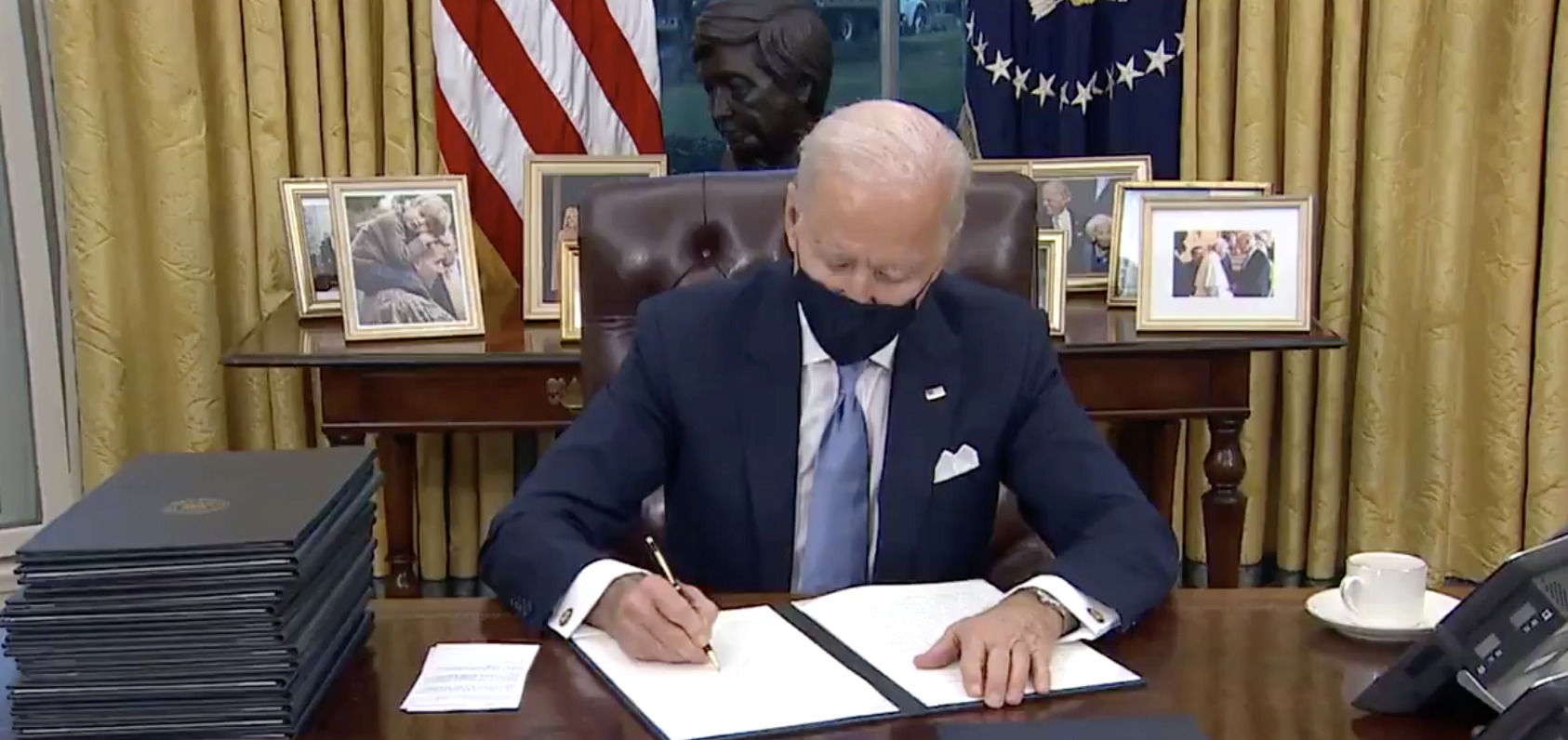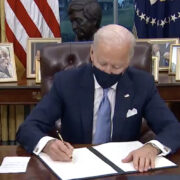The word ‘alien’ to be removed from immigration laws, Congress directed to provide pathway to citizenship for DACA recipients
AFTER the historic inauguration on Jan. 20, President Joe Biden followed through with promises to begin work on dismantling the stringent policies and measures of former President Donald Trump’s administration.
Trump’s immigration policy, in particular, was layered and wide-ranging, and it was fueled by a desire to keep entrance into the United States limited and to make it more difficult for the average person to gain legal entry into the country.

“There’s a long way to go. These are just executive actions, but we’re going to need legislation for a lot of these we’re going to do,” Biden told reporters at the Oval Office on Wednesday.
Among the keystone issues, immigration remains one of the top issues of the contemporary American political landscape, and among the sweeping changes that Biden made in his first directive is how to address people in the U.S. who aren’t naturalized citizens.
The proposed bill, if passed, would eliminate the word “alien” from all U.S. immigration laws and replace it with the word “noncitizen,” a significant symbolic change that many immigrant advocates have been calling for decades.
“The language change on the first day of this administration, with [Vice President] Kamala Harris the daughter of immigrants, to me is not just symbolic. It’s foundational,” Jose Antonio Vargas, the Filipino undocumented journalist and founder of Define American, told CNN this week. “How we talk about immigrants shapes the policies and it frames what are the issues really at stake here. It acknowledges that we’re talking about human beings and families.”
The Pulitzer Prize-winning writer has advocated for the protection of undocumented youth, most commonly referred to as DREAMers.
The Deferred Action for Childhood Arrivals (DACA) program, which went into effect in 2012 by former President Barack Obama, provides specific protections and benefits to qualified undocumented immigrants who were brought to the U.S. as children.
Biden — who has advocated for DACA recipients — vowed this week to strengthen the program that Trump previously tried to end by directing the Department of Homeland Security (DHS) and U.S. Attorney General to “take all actions [deemed] appropriate…to preserve and fortify DACA,” the directive read without elaborating on what those actions could look like.
Biden also called on the newly Democratic-controlled Congress to pass legislation that would provide a more permanent solution for DACA recipients as well as farmworkers and Temporary Protected Status holders.
The plan for these immigrants would include a series of background checks and taxpayer status in order for them to apply for green cards. To streamline these processes, the bill also aims to improve immigration courts, clear visa backlogs and authorize funding for border security.
Trump’s immigration policy was a primary catalyst for civil rights and legal advocacy groups who saw these measures as harmful for the wider immigrant community, but specifically to Asian, Latino and Black immigrant communities.
“We applaud President Biden in the fulfillment of his campaign promises to take action on day one to undo many of the harsh policies of [the] Trump administration,” John C. Yang, president and executive director of Asian Americans Advancing Justice | AAJC, said in a statement. “Legalizing undocumented people and reforming our family-based immigration system are top priorities for Asian American and immigrant communities. Through our collective advocacy with Latino and Black immigrant communities through the Value Our Families campaign we are one step closer to a more humane and just immigration system that puts families first.”
The bill also touched upon the U.S.-Mexico border and vows to end the national emergency declaration that allowed the Trump administration to dip into other government funds to build the wall, one of the former president’s strictest achievements that cost American taxpayers roughly $15 billion.
Throughout Trump’s presidency, a total of 453 miles of the wall had been completed and weathered barriers and fences had been fortified, and roughly 47 miles of the new wall have been constructed in areas where there were no barriers at all, Customs and Border Protection said in a statement.
Additionally, the DHS announced that starting Thursday, Jan. 21, it would halt deportations for certain noncitizens in the U.S. for 100 days and would cease enrollments in the Migrant Protection Protocols policy, otherwise known as the “remain in Mexico” program, which required Central American asylum seekers to wait in Mexico pending American court hearings.
In a memo issued late Wednesday, Acting Secretary of the DHS David Pekoske said that the U.S. is facing “significant operational challenges at the southwest border as it is confronting the most serious global public health crisis in a century,” adding that pausing these measures also gives the department time to review current programs and policies laid out by previous administrations.







